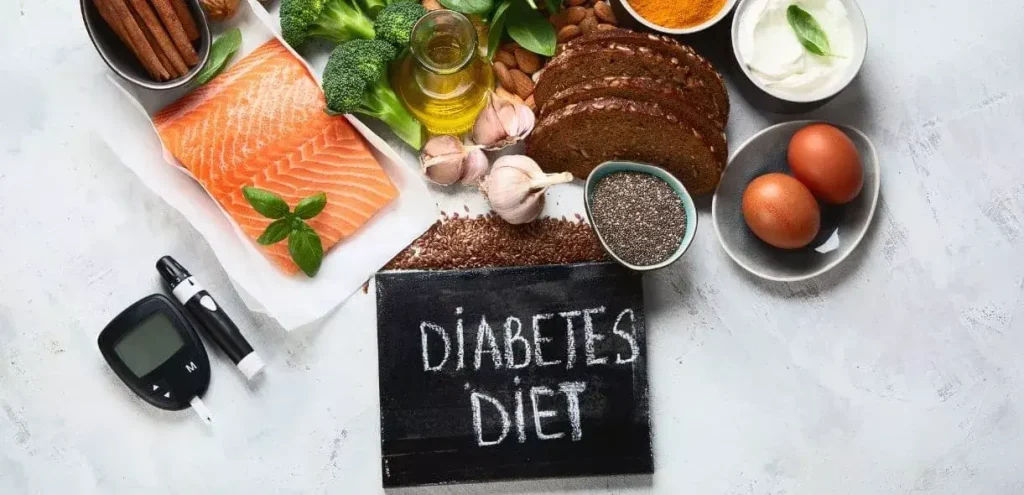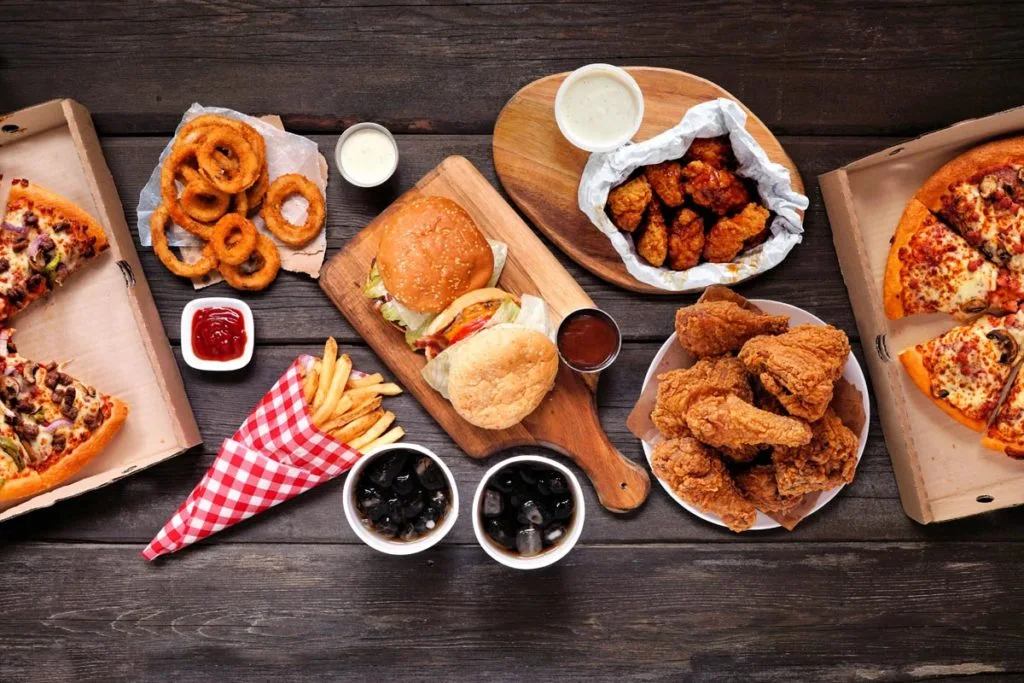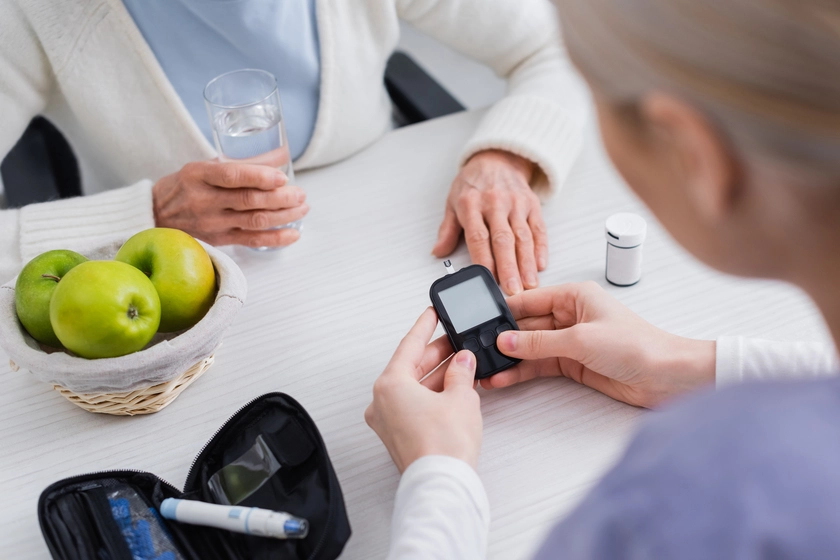
Dietary Restrictions for Diabetics Elderly People
Diabetes is one of the most difficult diseases that the elderly face. Elderly people who suffer from diabetes must avoid some food, otherwise, consuming harmful foods may have irreparable consequences for them. A noteworthy point about the dietary restrictions for diabetics elderly people is their tendency to eat harmful foods.
We usually see elderly people who do not take care of their health regardless of the consequences of consuming certain foods, such as fatty and sweet foods. We usually see elderly people who do not take care of their health regardless of the consequences of consuming certain foods, such as fatty and sweet foods.
What diet restrictions do diabetics have? In diet for diabetic seniors, we explain some foods seniors with diabetes should avoid eating. In this article from humanhealthmag, we want to specifically explain the prohibited foods in the diet of seniors with diabetes and the dietary requirements for a diabetic senior.
What Are the Dietary Restrictions for Diabetics Elderly?
Diabetes is also known as the silent disease of death, and many people in the world are diagnosed with diabetes every year. The main cause of the prevalence of diabetes is poor diet, low physical activity, and stress and anxiety in work and life situations. For elderly people with diabetes, having a diabetic diet and observing important points of diabetic nutrition, regular physical activity, taking vitamins, supplements, and taking diabetes pills and medications helps control high blood sugar and regulate glucose and insulin levels in the blood.
What they choose to eat, how much they eat, and when they eat are all crucial in keeping their blood sugar levels within the range recommended by their healthcare team. What to eat and what not to eat for diabetes? This is a question that arises for many seniors who are suffering from high blood sugar disease and their families. Follow us to read more about dietary restrictions for diabetics elderly.

High-Risk Foods for the Elderly with Diabetes
People with diabetes should avoid simple sugars and processed foods high in saturated and trans fats. Processed foods and unhealthy fats can raise blood sugar and increase the risk of heart disease. Some of the most inappropriate foods and nutrition for older people living with diabetes include:
1- Sugar, Sweets, and Ice cream
Sweet foods are considered toxic for diabetics because they contain very high sugar content. These can even affect the patient’s life, as they contain 800 calories and 120 grams of carbohydrates. Chocolate for seniors alnog its benefits, is very dangerous, especially for diabetics one! Because it is high in sugar and low in nutrients. Candy also causes obesity due to its high sugar content, which can also lead to diabetes. Diabetic seniors should use diabetic-specific sweets such as sugar-free candies in their diet instead of these foods.
2- Fruits and Juices
Most fruits and juices contain large amounts of sugar, which can greatly increase the blood sugar of the elderly after consumption. Sweet fruits such as grapes and mangoes should be completely eliminated from the elderly’s diet. Grapes have the worst effect on diabetics, as grapes contain high glucose. Mango contains about 12.7 grams of sugar per three ounces and also contains 70 calories. This is why diabetics should never consume this delicious fruit.
Papaya, although rich in carbohydrates and calories, contains a high level of sugar, which is about 59 milligrams. Therefore, it will be very dangerous for diabetics and a dietary restrictions for diabetics elderly because it can lead to an increase in blood sugar. Bananas are high in calories compared to other fruits, but they contain 15 grams of carbohydrates and are rich in sugar, so they will increase blood sugar. Watermelon is also not recommended for people with diabetes because it has a high sugar level, which is about 72 mg. It is rich in vitamins while containing 5 grams of carbohydrates. Therefore, it is not good for diabetic patients.
Diabetic patients should also not consume apricots and pineapples because both contain high levels of sugar and carbohydrates. It is worth noting that dried fruits such as raisins also contain a lot of sugar. In fact, fruits increase their sugar content after drying, so the elderly should also avoid eating dried fruits. The best drink for diabetic seniors is celery juice, which reduces their blood sugar.
3- Cereals containing white flour
White bread and white rice, which are made with white flour, are dangerous for diabetics and should be strictly limited in the diet of the elderly. Other cereals such as barley bread or brown rice can take their place. White bread can take control of glucose and this leads to bad effect for diabetic people.
White rice is used as a food in many countries. According to studies related to diabetes, diabetics should not consume more than the allowed amount of white rice. This is due to its high carbohydrate content and it has been proven that consuming white rice can increase the risk of type 2 diabetes. Therefore, people with diabetes should avoid consuming anything fried and made with white flour.

4- French fries
French fries are a delicious food for many people, but they are very dangerous for diabetics. French fries have 25 grams of fat and about 500 calories, while carbohydrates are about 63 grams. French fries are very fatty and cause weight gain or even obesity. According to this research, French fries can also cause blood sugar to increase. In order to comply with the dietary restrictions for diabetics elderly, it is better for you or the elderly nurse to prepare steamed foods for the elderly instead of fried foods, which will provide the necessary vitamins to their bodies and will not pose a risk to their blood sugar or fat.
5- Dairy
Milk, especially full-fat milk, is harmful to diabetic seniors. For some people, drinking milk will help build a healthy body. It also prevents viruses from entering. But if you drink it, you will increase your risk of diabetes. Because of the saturated fat in milk, this can worsen insulin resistance. It is worth noting that it is better to eliminate sugary dairy products from the diet of seniors and go for other sugar-free calcium sources to provide calcium to the body.
6- Pancakes
Consuming foods that are high in carbohydrates can have a bad effect on diabetics, including pancakes. The saturated fat in pancakes can also increase blood sugar levels among diabetics. As mentioned earlier, consuming foods made with white flour can increase the risk of diabetes.
7- Bacon Fatty Meat
Diabetic patients are not allowed to consume bacon and other meats because their saturated fat can lead to serious problems in the body. For people who have diabetes, they are at risk of heart attack by consuming bacon.
8- Energy drinks
People with diabetes should not consume any type of energy drinks. This is because these are high in sugar and carbohydrates and are one of dietary restrictions for diabetics elderly. They are very harmful for blood sugar levels, as they have about 60 grams of carbohydrates and 450 calories, which can easily increase blood sugar levels. One question: is split pea soup good for diabetics?

Important Points About Dietary Restrictions for Diabetics Elderly
Regarding a balanced diet and dietary restrictions of elderly diabetics that can reduce the risk of developing this disease, it is better to consider the following important points:
- Pay attention to the glycemic index (GI) of the foods you eat. These types of foods, such as processed foods and those lacking fiber, can quickly raise a person’s blood sugar.
- Consume more foods that are high in fiber, such as legumes, fruits and vegetables, whole grain breads, whole grains, etc.
- Fruits are the best snacks that are beneficial for diabetics because they are high in fiber.
- Be careful with starchy vegetables such as potatoes, corn, etc. Although vegetables are high in fiber and are very beneficial for diabetics, those vegetables that are high in starch can raise blood sugar dangerously.
- Nuts and seeds such as walnuts, pistachios, peanuts, etc. are very beneficial and harmless if consumed raw and with little salt.
- Soft drinks and sugary drinks greatly increase blood sugar and should be completely eliminated from the diet of these people.
- Low-fat protein foods are less harmful and do not make you fat. In addition, due to their high protein content, they keep a person full for a longer period of time.
- Try not to skip breakfast. Because by disrupting the balance of meals, the risk of overeating and the desire to consume harmful foods increases.
- Do not forget to drink the amount of water required by the body. Try to replace water with other sweet drinks with your meals. In addition, by drinking enough water throughout the day, you will feel less false hunger.
Concluding Remarks
Diabetics can prevent serious complications of the disease by following a diabetes diet in most cases. However, you should keep in mind that there is no specific diet for diabetes and you should only follow a suitable diet based on each individual’s conditions and with the advice of a doctor.
If you do not have enough time to take care of the elderly, the best thing to do is to contact a reputable center and hire a home elderly nurse. Nurses who are responsible for caring for the elderly at home are trained in the dietary restrictions of the elderly with diabetes and are well acquainted with the proper diet. You can hire a full-time or part-time nurse depending on your circumstances. A nurse can regularly check the elderly patient’s blood sugar and accordingly include the necessary foods in the elderly’s daily diet so that the elderly’s blood sugar level is at a desirable level.
We’ve shared our thoughts and now it’s YOUR turn! Please share your insights in the comments, and let’s start a meaningful discussion that will help others, too!

Frequently Asked Questions
What foods are forbidden on a diabetic diet?
Fried foods and other foods high in saturated fat and trans fats, foods high in salt, sweets, candy, and ice cream, drinks with added sugars, such as fruit juice, regular soda, and regular sports or energy drinks, alcoholic beverages and supplements and vitamins in the treatment of people with diabetes.
Does honey raise blood sugar?
Honey can increase blood sugar due to its natural sugar content. Although it is healthier and a little milder than regular sugar, it is better for diabetics to minimize its consumption and use low-calorie alternatives such as dried berries.
